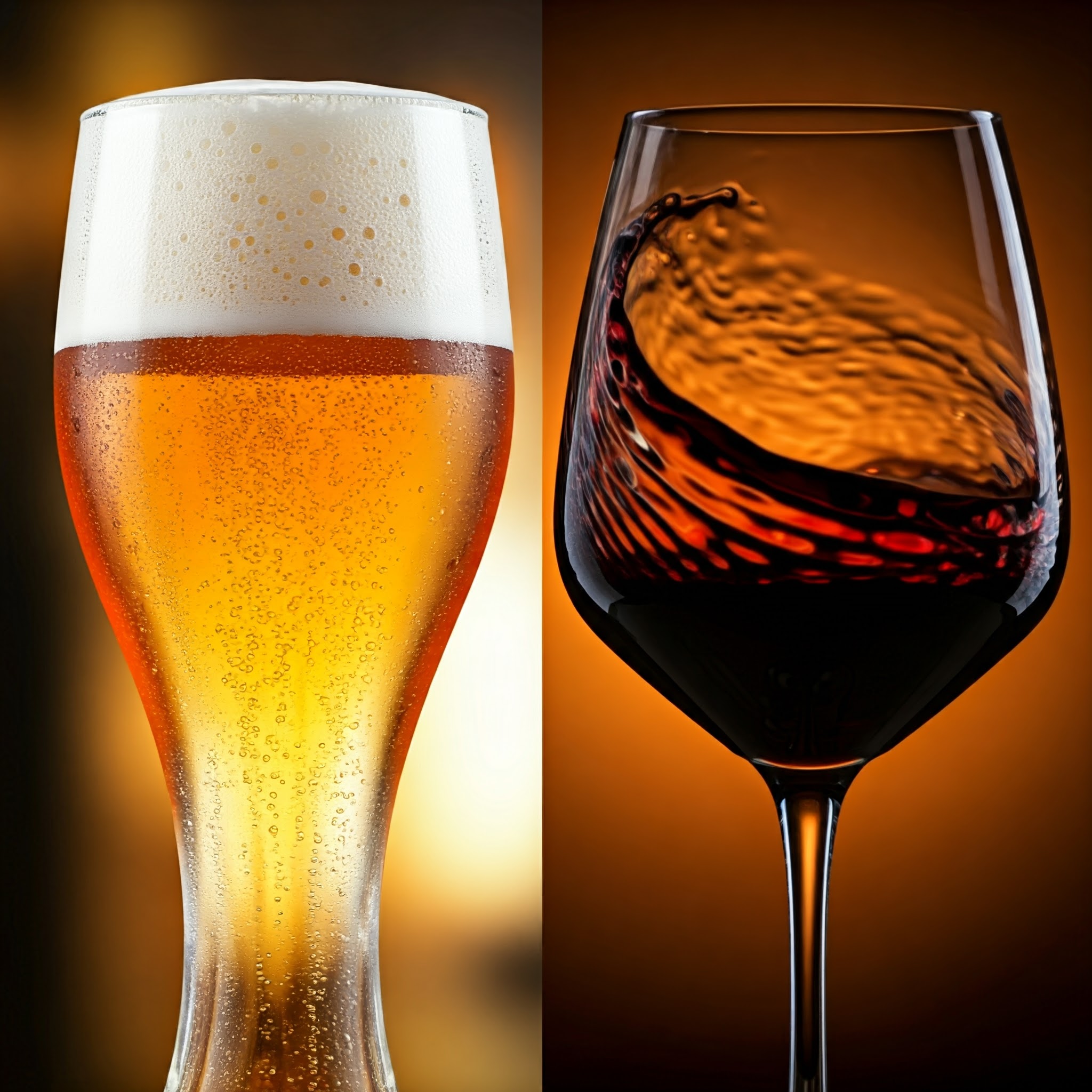The Great Debate
When it comes to alcoholic beverages, the eternal debate rages on: is beer or wine the healthier choice? While both offer potential benefits, understanding their nutritional profiles can help you make an informed decision.
Beer: A Foamy Friend
- Calories: Beer typically contains more calories than wine, especially when it comes to higher-ABV varieties.
- Carbohydrates: Beer is higher in carbohydrates than wine, primarily due to its grain-based ingredients.
- Nutrients: Beer contains some B vitamins and minerals, including magnesium and potassium.
- Antioxidants: Beer, particularly dark beers, contains antioxidants like flavonoids, which may have health benefits.
Wine: A Grapeful Glass
- Calories: Wine generally has fewer calories than beer, but this can vary depending on the type and alcohol content.
- Carbohydrates: Wine is very low in carbohydrates, making it a good choice for those watching their carb intake.
- Nutrients: Wine contains resveratrol, an antioxidant linked to heart health.
- Antioxidants: Red wine, in particular, is rich in antioxidants that may protect against chronic diseases.
The Verdict
While both beer and wine offer potential health benefits, wine is generally considered the healthier choice due to its lower calorie and carbohydrate content. However, it’s important to note that excessive alcohol consumption, regardless of the type, can have negative health consequences.
Key Factors to Consider:
- Alcohol content: Higher alcohol content means more calories.
- Serving size: A standard serving is typically 12 ounces for beer and 5 ounces for wine.
- Type of alcohol: Dark beers and red wines generally have higher antioxidant content.
- Personal preferences: Ultimately, the best choice is the one you enjoy and will stick with.
Moderation is Key
Remember, the key to a healthy relationship with alcohol is moderation. Enjoy your favorite beverage in moderation and always drink responsibly.
